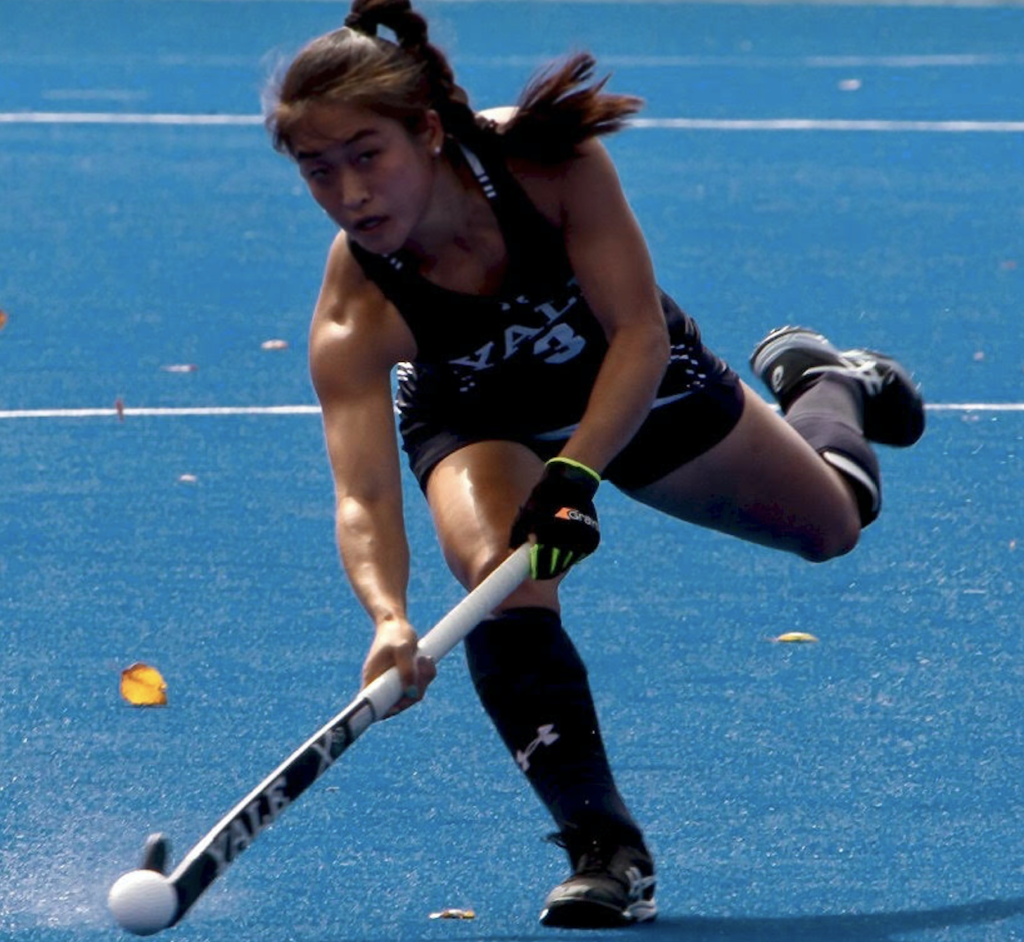FIELD HOCKEY: Katie Pieterse ’23 interns for three different organizations while on leave
Pieterse, a member of the Yale field hockey team, has been working for three different community-based organizations that she connected with through the Dual School program while on a leave of absence.

Courtesy of Katie Pieterse
Ask any Yale student to define their true passion, and the most likely response would include a blank expression and brief stumble in the conversation. Katie Pieterse ’23 is no exception, but she has been spending her gap semester exploring her answer to that complicated question.
Like many other athletes, the prospect of returning to a mostly-virtual Yale and losing a year of athletic eligibility was an unattractive one for Pieterse — a defender on the field hockey team. So rather than taking classes an hour away from campus from her home in Ridgefield, Connecticut, she opted to join the 23 percent of Yale students on a leave of absence.
This alternative semester has been largely defined by her participation in the Dual School program. According to the website, the program is “For ambitious high school students who want to become social activists and entrepreneurs.” Pieterse says that while the program is usually geared towards high school students, it expanded its offerings to college students, anticipating an influx of college students taking a leave of absence whose planned internships and jobs had fallen through because of COVID.
Pieterse’s exposure to the program began through her connection with Catherine “Cat” Lindroth ’08, the co-founder of the program’s parent organization, Social Contract. Lindroth happens to be a Yale women’s field hockey alumnus. Through this connection, Pieterse said that roughly half of her field hockey teammates are participating in the Dual School program as well.

Pieterse recounts the beginning of the program where she identified her interests and the skills that she wanted to develop at the time. She recalled that program participants go through an initial call with Lindroth to do a “deep dive” of the applicant’s interests. Based on this information, the Dual School program then connects college students with an organization that aligns with the student’s goals.
In Pieterse’s case, there is an element of plurality.
“Personally I’m into mental health, teaching counseling so I ended up signing on with three different organizations, which does sound like a lot but it’s a very well-rounded internship,” she said.
Since mid-September, she has been working with Trauma Matters Delaware, Jewish Family Services in Delaware and the Dual School’s own Social Change Fellowship. She serves in a unique capacity for each organization.
At Trauma Matters Delaware, Pieterse works with the institute of higher education working group, which was created to help make organizations and universities “more trauma informed,” she explained. Her main project within is contributing to a white paper on curriculum and pedagogy for the universities. She hopes that her work will help institutions understand that “looking through a trauma lens is one of the most important things when you’re approaching structural and cultural changes within your universities.” She is currently working with Wilmington University, University of Delaware and others. Pieterse also mentioned that her perspective as a current college student has been recognized as a unique resource within the team.
The second organization that Pieterse works with is Jewish Family Services in Delaware, which is a social services non-profit. The organization provides therapists, psychiatrists and support groups to those in need.
“It is a whole menu of amazing social services,” Pieterse told the News.
For this non-profit, Pieterse serves as a marketing intern, helping develop strategies to communicate the resources of the organization to the public. She explained that she’s been primarily focused on promoting their addiction support group for family and friends.
Finally, as a co-facilitator for the Social Change Fellowship, she guides a cohort of high school students in designing solutions for real social issues.
“We’re [facilitators] not there to tell them what to do or what not to do but as good general support for these kids who are tackling some of the world’s biggest issues right now,” she said when asked about her role.
Pieterse said that she enjoys that all of her involvements give her a certain degree of flexibility.
“It’s not something where you’re bound to one job and one job only. You can explore your own interests within whatever tasks that they’re having you do,” she said.
When asked how she sees this experience affecting her future, she remarked that the experience had piqued her interest in her specific areas of psychology that she had never considered before. She had been “pretty set” on attending grad school “for quite some time now” and said that she wanted to get a master’s degree or Ph.D. in clinical psychology. Working on topics related to trauma has piqued her interest in that area.
While Pieterse has found her participation in the Dual School program this semester to be rewarding, she admits that it is not a perfect substitute for a normal semester at Yale. When asked what she misses most about Yale, her answer is one that is probably shared by other Yalies on leave: “Everything.”
Pieterse currently plans on re-enrolling for the spring semester.
Chanwook Park | chanwook.park@yale.edu







